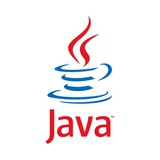Understanding DynamoDB Hash and Range Keys in Java
Hey everyone! 🚀 Today, I want to share some insights on how to query DynamoDB using hash and range keys.
When using DynamoDB, having a good understanding of partition keys (hash keys) and sort keys (range keys) is crucial for efficient queries. Here's a quick breakdown:
- Hash Key: Uniquely identifies an item in a table.
- Range Key: Allows multiple items with the same hash key, differentiated by this key.
To query using these keys in Java, you can use the AWS SDK like this:
DynamoDbEnhancedClient enhancedClient = DynamoDbEnhancedClient.create();
DynamoDbTable<YourItemClass> table = enhancedClient.table("YourTableName", TableSchema.fromBean(YourItemClass.class));
QueryConditional query = QueryConditional.keyEqualTo(Key.builder().partitionValue("yourHashKeyValue").sortValue("yourSortKeyValue").build());
Page<YourItemClass> result = table.query(query);
This setup gives you fine control over your data retrieval. Don't hesitate to dive deeper into AWS docs, and practice querying your own DynamoDB tables! 📚✨
Happy coding! 💻
>>Click here to continue<<
